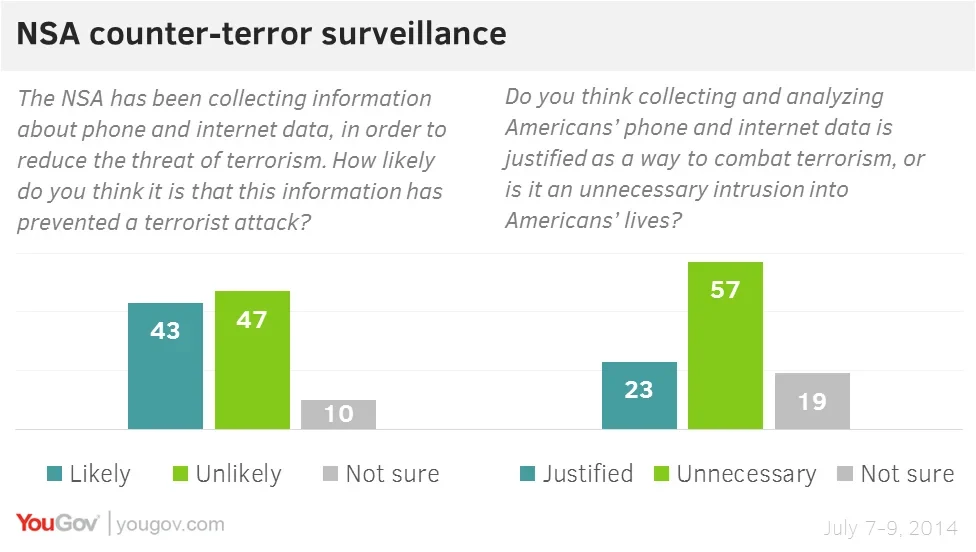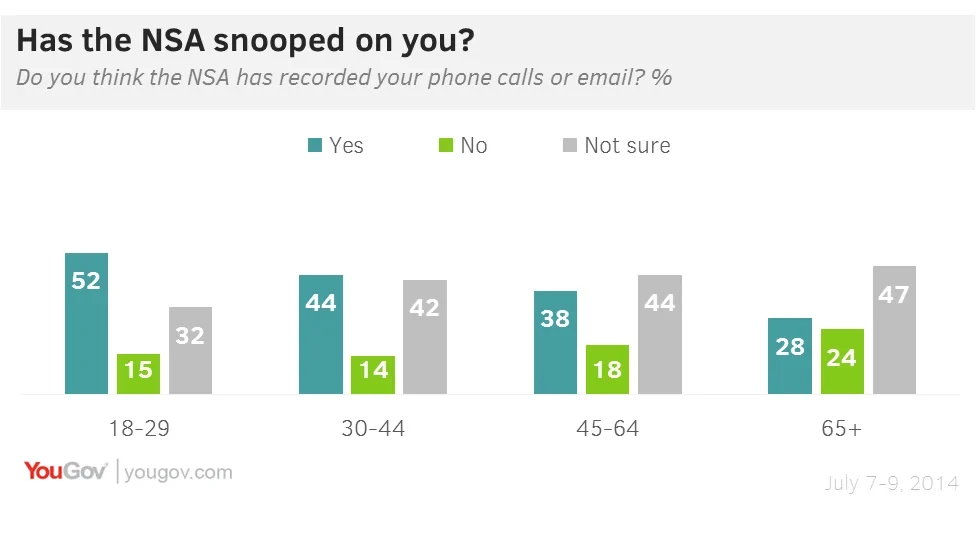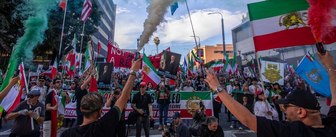Most Americans say that NSA domestic surveillance is an unnecessary intrusion with many doubting whether such programs have even helped to prevent any terror attacks
It has been over a year since Edward Snowden fled the United States and provided journalists with classified documents detailing the NSA's huge electronic surveillance programs. The latest revelations for the stash of documents shows that only around 10% of the communications captured belonged to foreigners who could be legally targeted with the rest belonging to foreigners and Americans who were not targets of surveillance. In fact, nearly half of surveillance files were considered by the NSA to contain the communications of American residents or citizens.
The latest research from YouGov shows that Americans have a poor impression of the NSA's phone and internet surveillance programs. 57% of the public say that collecting and analyzing Americans' phone and internet data is an unnecesary intrusion in their lives, compared to only 23% who say that it is a justified way to combat terrorism. While only 23% support the tactic, 43% do think that the NSA's program of collecting phone and internet data has likely helped to prevent a terrorist attack. This is, however, marginally lower than the 47% of Americans who say that it is unlikely to have prevented any attacks.

This is an improvement on January 2014, however, when only 34% of Americans said that the programs were likely to have thwarted an attack and 54% said that they were unlikely to have. Similarly, in January 2014 only 23% of Americans thought that collecting and analyzing Americans' call data was justified, while 62% said that it was an unnecessary intrusion.
Overall, 41% of Americans think that the NSA has recorded their phone calls or e-mails, 42% aren't sure either way and only 18% think that the NSA hasn't snooped on them. Younger Americans are far more likely than older Americans to think that they have been subjected to NSA surveillance. 52% of under-30s think that their phone calls and e-mails have been recorded by the NSA, compared to only 28% of over-65s.

Americans haven't always been the inadvertant targets of the NSA. This week it was revealed that the NSA monitored the e-mails of at least five Muslim Americans, including an Executive Director at the Council on American-Islamic Relations (CAIR), a civil rights group and a former Department of Homeland Security official during the Bush Administration.
Full poll results can be found here.
Image: Getty









